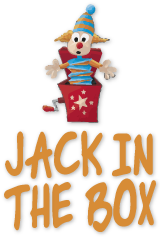Policy statement
We provide care for healthy children and promote health through identifying allergies and preventing contact with the allergenic substance and through preventing cross infection of viruses and bacterial infections. Information of allergens in any of the snack or food activities we provide will have an information sheet detailing any allergens present. This is available at all times upon request. A list of all allergens is displayed for parents to see.
Procedures for children with allergies
- When parents start their children at the setting they are asked if their child suffers from any know allergies. This is recorded on the registration form.
- If a child has an allergy the following will happen:
- The allergen (i.e. the substance, material or living creature the child is allergic to such as nuts, dairy or bee sting) will be put up on our medication chart on the wall in the setting.
- The nature of the allergic reaction and what to do in the case of a reaction will be kept in our medication file and is kept close at hand.
- Parents train staff in how to administer special medication in the event of an allergic reaction, or a trained medic would be brought in for any specialist training.
- Parents’ consent must be given in writing to administer the medicine.
- Generally, no nut or nut products are used within the setting.
- Parents are made aware so that no nut or nut product are accidentally brought in.
Procedures for children who are sick or infectious
Since the outbreak of Coronavirus we have a separate policy outlining the procedures to follow if an adult or child falls ill, suspected of Covid -19. We outline a separate guidance to what our procedures would need to be, which are different from what is outlined below.
- If children appear unwell during the day – have temperature, sickness diarrhoea or pains, particularly in the head or stomach – the manager or supervisor calls the parents and asks them to collect the child, or send a known carer to collect on their behalf.
- If a child has a temperature, they are kept cool, by removing top clothing, sponging their heads with cool water, but kept away from draughts.
- In extreme cases of emergency the child should be taken to the nearest hospital and the parent informed.
- Parents are asked to take their child to the doctor before returning them to playgroup; the playgroup can refuse admittance to children who have a temperature, sickness and diarrhoea or a contagious infection or disease.
- Where children have been prescribed antibiotics, parents are asked to keep them at home for 48 hours before returning to the setting.
- After diarrhoea and sickness parents are asked to keep them at home for 48 hours after the last time they were ill before returning them to setting.
- The setting has a list of excludable diseases and current exclusion times. The full list is obtainable from patient.co.uk and includes common childhood illnesses such as measles.
Reporting of notifiable diseases
If we hear of a positive case of Covid amongst staff or children we follow different procedures to whom we notify as set out in our Coronavirus policy/updated government guidelines at the time.
- If a child or adult is diagnosed suffering from a notifiable disease under the Public Health (Infectious Diseases) Regulations 1988, the GP will report this to the Health Protection Agency.
- When the setting becomes aware, or is formally informed of the notifiable disease, the manager informs Ofsted and acts on any advice given by the Health Protection Agency.
HIV/AIDS/Hepatitis procedure
- HIV virus, like other viruses such as Hepatitis, (A, B and C) are spread through body fluids. Hygiene precautions for dealing with body fluids are the same for all children and adults.
- Single use vinyl gloves and aprons are worn when changing children’s nappies, pants and clothing that are soiled with blood, urine, faeces or vomit.
- Soiled clothing is double bagged for parents to collect.
- Spills of blood, urine, faeces or vomit are cleared using mild disinfectant solution and mops; cloths used are disposed of with the clinical waste.
- Table and other furniture, furnishings or toys affected by blood, urine, faeces or vomit are cleaned using a disinfectant.
Nits and head lice
- Nits and head lice are not an excludable condition, although in exceptional cases a parent may be asked to keep the child away until the infestation has cleared.
- On identifying cases of head lice, all parents are informed and asked to treat their child and all the family if they are found to have head lice.
Published: 11th September 2023
Review: September 2024
© Jack in the Box Playgroup Limited trading as Jack in the Box Preschool.

